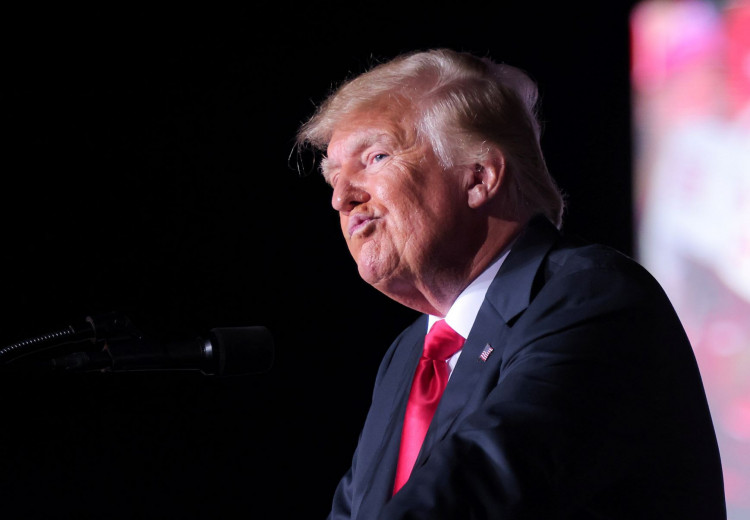The hush-money trial of former President Donald Trump took a tabloid-esque turn on Thursday as testimony from a key prosecution witness, attorney Keith Davidson, was dominated by references to celebrity scandals and alleged extortion attempts. Davidson, who represented both former Playboy Bunny Karen McDougal and porn star Stormy Daniels in their pursuit of catch-and-kill cash from the National Enquirer for their stories of sexual encounters with Trump, faced a hostile cross-examination from Trump's attorney Emil Bove.
Bove's line of questioning appeared to focus on creating distance between Trump and his campaign on one side, and Davidson's wheeling and dealing on the other. The defense attorney sought to paint Davidson as a scandal-mongering lawyer who had made a career out of shakedowns and extortion attempts, implying that Trump was a victim, not an instigator, in any hush-money schemes.
The cross-examination was punctuated by name-dropping of C-list celebrities, including Charlie Sheen, Hulk Hogan, Lindsay Lohan, Floyd Mayweather, and Tila Tequila, all of whom had allegedly had run-ins with Davidson. Bove questioned Davidson about his involvement in the infamous Hulk Hogan sex tape scandal, asking, "Isn't it a fact that in connection with events in 2012, you were investigated by state and federal authorities for committing extortion against Terry Bollea - Hulk Hogan?"
Davidson initially denied making a monetary demand to Hogan's representatives to not publish the tapes, but later conceded that there was a "monetary demand made" for Hogan to purchase the rights to the tapes. Bove also delved into Davidson's representation of an employee at the Betty Ford rehab clinic in 2010, who had allegedly leaked information about actress Lindsay Lohan's treatment at the facility.
The heated exchange between Bove and Davidson reached a boiling point when Bove said, "We're both lawyers. I'm not here to play lawyer games with you." Davidson pushed back against the defense's use of words like "extortion" to describe what he maintained were valid legal settlements, repeatedly citing attorney-client privilege.
Prosecutors, meanwhile, had called Davidson to connect Trump, his ex-lawyer Michael Cohen, and the $130,000 hush-money payment made to Stormy Daniels ahead of the 2016 presidential election. The former president has pleaded not guilty to 34 counts of falsifying business records to conceal the payment and has denied any sexual encounter with Daniels.
Davidson detailed how the payout to Daniels was shaped and emphasized his assumption that Trump was behind keeping her quiet in October 2016. Emails and text messages presented in court indicated that Davidson and others believed the hush-money agreement with his former client helped Trump win the presidency just a month later.
In a particularly revealing moment, prosecutor Joshua Steinglass played recordings of Davidson and Cohen on the phone, "surreptitiously recorded" by Cohen. In one recording, Cohen states that Trump told him several times that he "hate[s] the fact that we did it," referencing Stormy Daniels' hush-money deal.
As the trial continues, the focus remains on the alleged falsification of business records by Trump to conceal the hush-money payment to Daniels. The defense's efforts to discredit Davidson as a witness by linking him to various celebrity scandals and alleged extortion attempts have added a tabloid-like atmosphere to the proceedings, reminiscent of the sensationalistic reporting often associated with the National Enquirer.
With Michael Cohen expected to testify soon and Justice Juan Merchan's ruling on Trump's potential gag order violations pending, the trial continues to captivate the nation's attention as the first-ever criminal proceedings against a current or former U.S. president unfold in a Manhattan courtroom.






